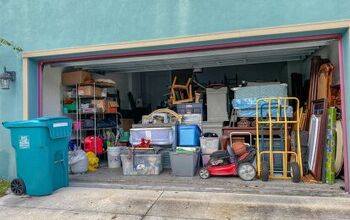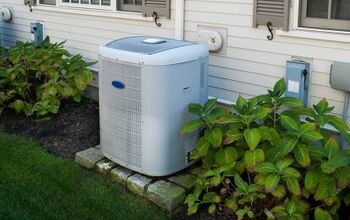Water Heater Smells Like Gas? (Fix It Now!)

If you wake up in the morning and the first thing you smell is gas, that would automatically tell you something is wrong. Leaking gas is inevitably a serious situation that you need to handle as soon as possible. It is never ideal to stall when it comes to gas leaks.
If you smell gas coming from your water heater, there is more than likely a gas leak. This is a serious matter, and you should shut off the gas to the water heater immediately. After you shut off the gas, you need to pack your family up and leave for your safety.
It is highly suggested to call a professional to fix a gas leak. However, that does not mean it is impossible to do yourself; but proceed with caution. Be sure to wear the proper protective gear to ensure that you do not inhale gas while fixing the leak.
Do You Need Water Heater Repair Services?
Get free, zero-commitment quotes from pro contractors near you.

Water Heater Safety Tips
Make sure to always keep the area around the water heater clear. Never store any kind of combustible items on or around the water heater. Last but not least, never use the top of the water heater for storage.
These safety tips are to ensure that you do not leave anything dangerous around the water heater. Additionally, these steps ensure that the water heater has room to ventilate. If the water heater does not have the proper space for ventilation, then it will not run correctly.
Tankless Water Heater
Tankless water heaters can be more efficient when it comes to having a water heater. Not only do they save space in your home, but they also have a longer lifespan than most water heaters with a tank. However, a tankless water heater may take some getting used to after having a regular water heater.
If the water heater you are using does not have a tank, then a slight smell of gas may be normal. It is expected for a tankless water heater to smell like gas when it first cuts on. However, it is not normal for the water heater to smell while it is running.
Why Does My Water Heater Smell Like Gas?
Before we jump in and address the worst-case scenario – a gas leak – let’s do a brief science lesson. For starters, natural gas is odorless. So, when you say that you smell gas, you’re actually smelling the chemical mercaptan. This chemical is added to natural gas in order to make it easier to identify gas leaks. It has a distinct sulfuric smell, which makes leaks almost immediately noticeable.
However, when it comes to water heaters, one can often mistake the distinct mercaptan odor for something else. Since the water heater’s numerous components are exposed to chemicals and moisture, you may be smelling a lot of things near the heater, and not necessarily gas. So, let’s rule out other potential odors first:
Rotten Egg Odor in Water
Some water heaters can generate odors in your water that smell similar to rotten eggs. This occurs when bacteria react aluminum or magnesium anodes which attract corrosive elements in the water. If this is happening, there is likely a buildup of hydrogen sulfide gas present in your water. The best way to address this problem is to replace the anodes. If the issue persists, you may have a gas leak on your hands.
Burning Wire Smell
If the odor you smell coming from your hot water heater is similar to a burning wire, or some other type of electrical smell, this may indicate a problem with your wiring or the heater’s electrical component. In most cases, this odor results from a discharge know as arcing, which occurs when two loose wires make intermittent contact.
This problem will require remediation from an electrician, as the wiring will likely have to be replaced. Until you can have a specialist come out and fix the issue, turn off the breaker.
If you’ve determined that you probably have a gas issue on your hands, you must act fast.
Fixing a Gas Leak
It is essential for you to address this situation as soon as possible, as gas leaks can be dangerous to your family. When replacing the old gas line, use a new gas line with protective polymer on it. This will ensure that you get more use out of the pipe.
A regular gas line will only cost you about $15 to $25. A gas line with protective polymer will cost a little more. It will range anywhere from $30 to $40, but the quality will be worth the money. You will not need any extra tools. The only thing you will need to complete the job is a new gas line. The job itself is relatively simple, and you can complete it in seven easy steps.
However, you must keep in mind that fixing the gas line may not solve the problem. You may need to call in a professional for help if it does not. Having somewhere to go for the night may also be necessary if you cannot fix the gas leak right away.
Step 1: Clear a Path
When fixing a gas leak, it is clear that you will need to access the water heater. Make sure that you have a clear path to the gas pipe and the valve. It wouldn’t do any good to get there and have no room to do the job.
It would also be a good idea to keep the space around the water heater cleared out. This will leave room for ventilation and prevent further issues. Cleaning around the water heater every few weeks can also keep dust from building up in unnecessary places.
Step 2: Locate the Gas Pipe
You can find the pipeline above, behind, or to the side of the water heater. Make sure to locate the pipeline before you begin working. If you are unsure of the gas pipe’s location, a quick Google search will do the trick.
Step 3: Turn off the Gas
Forgetting to turn the gas pipe off could result in physical harm to you and your family. You need to prevent this at all costs. Once you locate the pipeline, twist the handle counterclockwise until it stops. You will know that it is off when the handle is perpendicular to the path of the pipe. Do not continue trying to turn the handle after it stops, or it will break.
Step 4: Remove the Flexible Gas Line
Removing the old gas line should be fairly straightforward. You will have to pop the gas line out of place and set it to the side. Remember to keep the old gas line out of your working space. Also, do not touch your face while the smell is on your hands, for your own safety.
Step 5: Replace the Gas Line
Replace the old line with the new line. The new line should feature the protective polymer to ensure a more extended time period before leaking. The new gas line should terminate no further than two feet off the ground and no less than 6 inches. These measurements will keep things at a comfortable distance for the water heater to run correctly.
Step 6: Open All the Windows and Doors
Take a moment to open all of the windows and doors in your home. This creates escape routes for the remaining gas in the home.
If you skip this step, you may not realize that the smell isn’t going away until it is too late. If the smell never goes away, there is no way to tell if the gas leak has stopped when you turn the gas back on.
Step 7: Restore Power
Before turning the power back on, wipe down the water heater while it is cool. This will prevent sediment build-up from happening in the near future. Sediment build-up may cause a hissing sound when you are using hot water.
Step 8: Check for a Gas Smell
Now that you have replaced the pipe and emptied the house of gas make sure that you can’t smell gas. If you continue to smell gas, this is a larger problem, and you need to call professionals. Turn the gas off, and immediately call the gas company.
However, you can also buy a gas leak detector to notify you when the leak begins. You can find a gas leak detector at any Walmart close to you or on Amazon. They typically range anywhere from $20 to $25. Do not forget to leave a clear path around the water heater to ensure that there is room for ventilation. Leaving room for ventilation may also prevent condensation from touching hot surfaces.
Related Questions
Will a carbon monoxide detector detect a gas leak?
Technically, a carbon monoxide detector only detects carbon monoxide. However, detecting a gas leak is relatively simple if you have a working nose. You will typically smell gas in your home if there is a gas leak. Although natural gas has no odor, the gas company adds an odorant for the sole purpose of alerting people to a gas leak. This is the familiar rotten egg smell that fills the air when a gas leak occurs. Additionally, you might also hear a whistling sound, indicating that you have a gas leak.
Can a gas leak cause carbon monoxide poisoning?
Gas leaks can cause symptoms that mimic carbon monoxide poisoning. These symptoms include headache, dizziness, nausea, and fatigue. Although the two mimic each other, you can not get carbon monoxide poisoning from a gas leak.
Would it be safer to call a professional for a gas leak?
When it comes to a gas leak, you can never be too prepared. Gas leaks are highly dangerous and can lead to death. Therefore, it would be much safer to call a professional. Professionals are more aware of the severity of the situation. They also have the proper equipment to wear and use when it comes to fixing a gas leak. If you do not address the issue in a timely manner, you may be putting your neighbors at risk as well. Leaving the issue for an extended period of time could result in the loss of your home, or even worse, your life. This can also leave your neighbors at risk of losing their homes or lives as well. It is in your best interest to go ahead and call in the professionals and get yourself to safety. You should also give your neighbors a heads up too. This way they can be aware of the situation and do what they need to do to keep their families and homes safe.
Do You Need Water Heater Repair Services?
Get free, zero-commitment quotes from pro contractors near you.

Wrapping Up
Assuming that you did not have to call a professional, the job should not have taken very long. You’ll likely spend the majority of your time airing out the house. Once there is no gas floating around, you and your family can safely enjoy the comfort of your home.

Stacy Randall is a wife, mother, and freelance writer from NOLA that has always had a love for DIY projects, home organization, and making spaces beautiful. Together with her husband, she has been spending the last several years lovingly renovating her grandparent's former home, making it their own and learning a lot about life along the way.
More by Stacy Randall



























